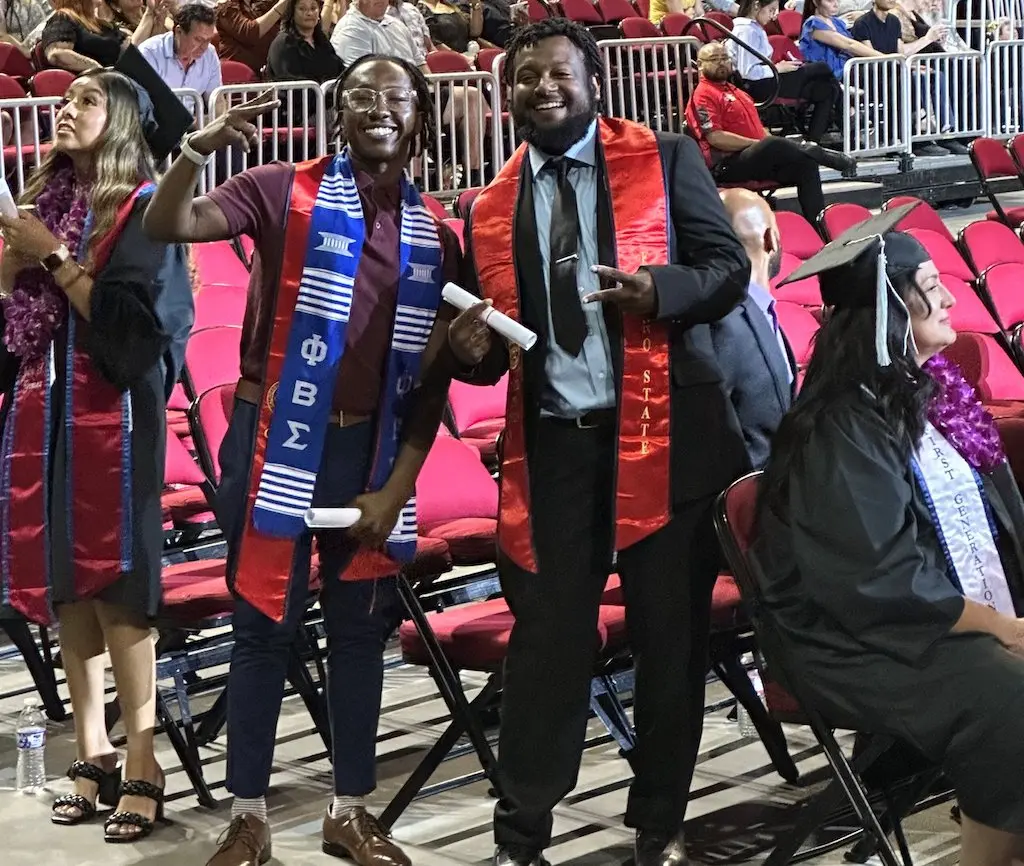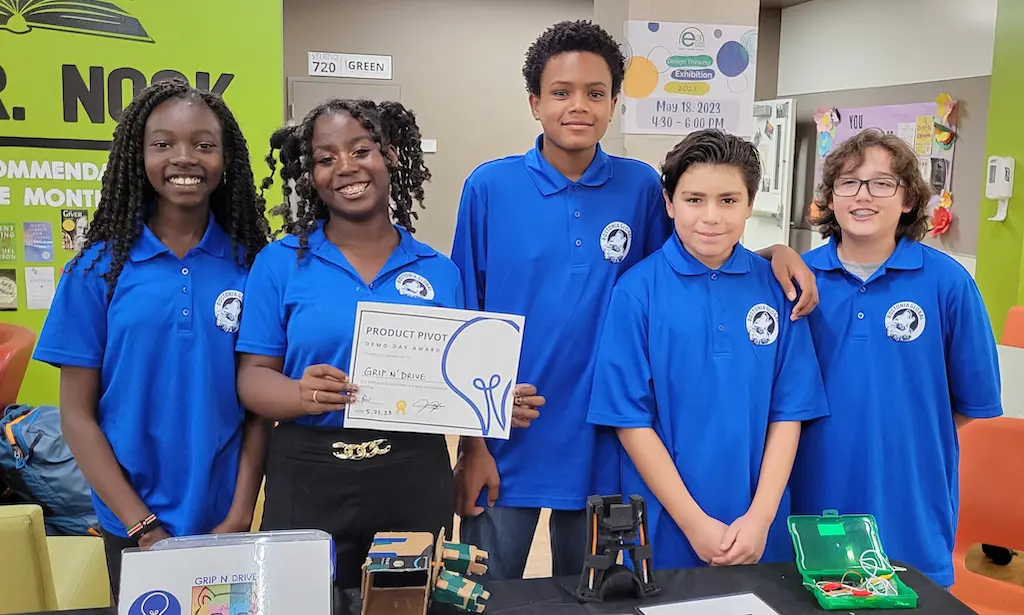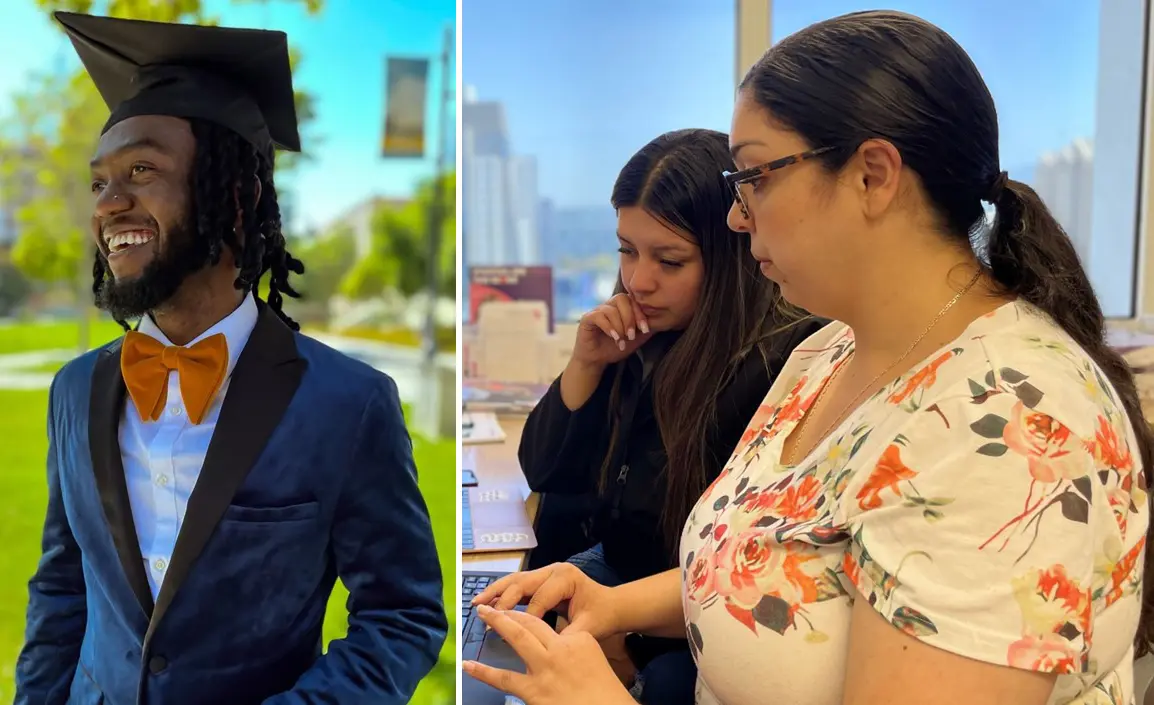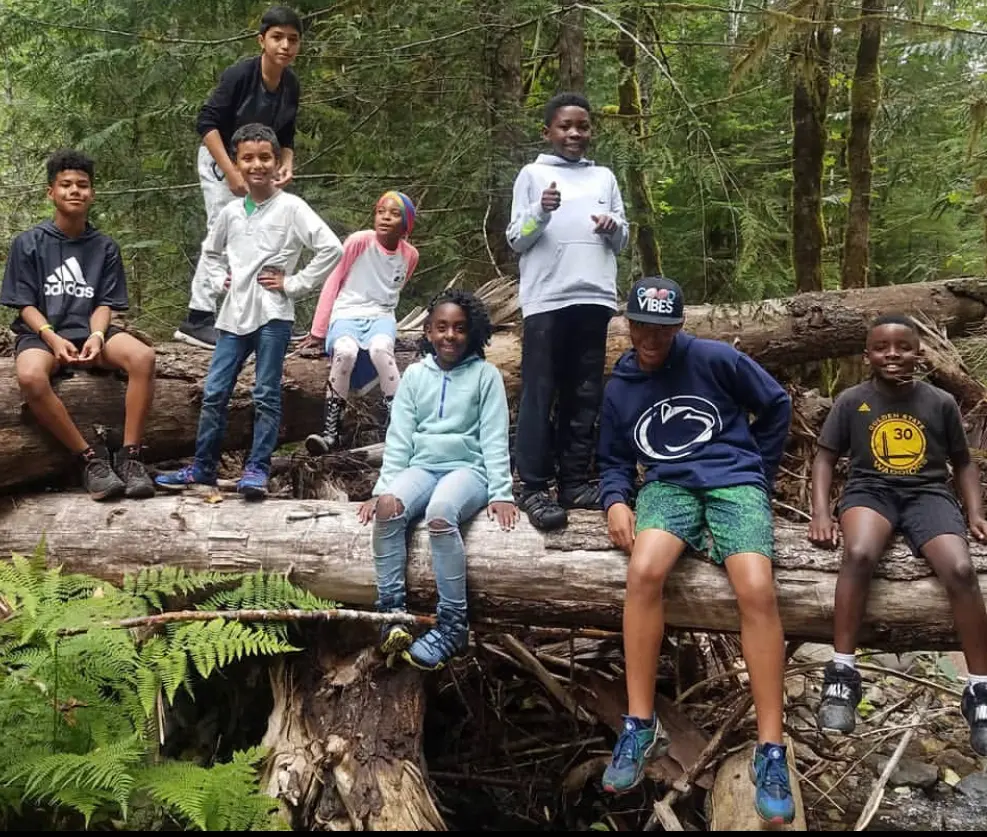KLA Foundation has announced inaugural recipients of its KLA Education Equity Fund grants, awarding more than $1 million to four nonprofits working to expand access to quality education among traditionally underrepresented K-12 students in U.S. communities where KLA has operations.
The KLA Education Equity Fund is a multiyear commitment in annual grants designed to drive progress in three core areas:
- Expanding access to education with a focus on science, technology, engineering and math (STEM)
- Advancing emotional well-being
- Improving systems through influencing change in policies and curriculum and supporting a diverse talent pipeline
These four nonprofits in California and Oregon will receive KLA Education Equity Fund grants for 2023:

Urban Ed Academy, $250,000 over Two Years, to Bring Black Male Teachers into Classrooms
Only 1.2% of U.S. teachers are African American men. That’s a stark statistic Urban Ed Academy (UEA) often cites and is working to remedy through its “Man the Bay” initiative that’s bringing more Black teachers into classrooms in San Francisco and Oakland, California.
The San Francisco-based UEA has recruited, trained and placed 25 men of color in 15 schools to teach 2,500 students since 2018 – numbers the organization hopes to expand in the near term.
One stated goal is for every Black student in Oakland and San Francisco schools to have at least one Black male teacher before the sixth grade, with a focus on STEM. Through 2026, the organization hopes to have 100 additional male teachers of color in those classrooms. This includes 36 teachers the KLA Foundation grant will help to fund by 2025.
The potential impact is two-fold.
“For Black children attending these schools, they will get to see themselves in a teacher, which will be motivating and inspiring, and they will hopefully be more likely to stay in high school and go to college. For non-Black students, it’s our hope that they come away with an understanding of who a Black man is – it’s undeniable that many have no idea what it is like to commune with a man of color until they go to college.”
Randy Seriguchi Jr., executive director, UEA
Long-term impact of a 4-year-old program is difficult to assess, according to Randy, who notes improvement in some standardized testing and adds: “For the current group of students being taught by African American men, we really won’t know how they’ve been impacted until they get out into the world and have some real-life experiences.”
Recognizing the significance of industry exposure and the value it brings to the classroom, Man on the Bay includes a STEM-focused mentorship that connects teachers-in-training with professionals in the semiconductor and related technology industries to foster an exchange of knowledge and experiences.
“The dearth of regular and practical support from professionals of color with regard to STEM has been a rallying point as we look toward the future,” Randy says. “As the labor market of tomorrow continues to build up, who will be part of a company’s workforce and what it should look like is a reflection of consumers. When companies have a diverse workforce, they’ll see more trust and brand connection among consumers – and a lot more innovation, I think.”
Project Invent: $375,000 over Three Years to Enhance Student Invention and Entrepreneurship
Project Invent, a national nonprofit with roots in San Francisco, will expand a transformative STEM educational experience. The program prepares teachers to empower traditionally underserved students as innovators who invent technology solutions that solve real problems in their communities, with the support of the KLA Education Equity Grant.
The organization’s new Project Invent Whole School Model is an outgrowth of its program that since 2018 has recruited and trained more than 300 educators in design thinking, engineering and entrepreneurship during yearlong fellowships.

Beginning in the 2023 school year, Project Invent will apply this successful program that has impacted over 2,000 middle school and high school students to schools in at least four communities where KLA has a presence.
Over five years, teachers at schools throughout California and more than more than 20 other states have guided students on invention journeys and have built multiple projects, including: umbrellas with heating and cooling functions for the unhoused, smart wallets that help blind people detect dollar bill denominations, football helmets that detect early signs of concussion and a prototype that helps limit emissions from city buses in San Diego.
“Students are concerned about climate change, social justice and other issues in their backyards, and the inventions we’re seeing are reflecting these interests,” says Jax Chaudhry, executive director, Project Invent. “Youth today need to learn the mindsets and skills that empower them to practice creativity, resilience and empathy through real-world problem solving, and most traditional schools don’t have the resources to do this.”
The organization’s goal is to increase diversity in STEM and entrepreneurship as the U.S. workforce moves deeper into a tech-driven future. Project Invent successfully piloted its whole school model at a middle school in El Cajon, California where 90% of students identify as minorities and 70% qualify for free or reduced priced lunch.
“Many students weren’t interested in engineering initially, but quickly realized that inventing solutions to problems could deliver societal benefits. Economic success and making a local and global impact through invention are key drivers as we use KLA Foundation’s grant money to expand the program so it’s available to all students in these schools instead of a limited few.”
Jax Chaudhry, Project Invent
Project Invent will be embedded in science classes, special courses or other in-school programs in each of the four communities adopting Project Invent’s new holistic model over a three-year period.
Pivotal: $300,000 over Three Years to Help Young People in and from Foster Care Finish High School
In California, only 46% of young people in foster care graduate from high school and nationwide just 4% earn a bachelor’s degree.
San Jose-based Pivotal Connections is making an impact on these alarming numbers through its High School Coaching Program, where, on average, 74% of participants earn high school diplomas and 77% go on to post-secondary education. The grant from KLA Foundation will make a significant impact by helping hundreds of young people graduate from high school and succeed in life, according to Matt Bell, CEO, Pivotal.

In the 2022-23 academic year, Pivotal served 535 youth in foster care from Santa Clara and San Mateo counties and in 2023 will expand coaching services to high school students in Alameda County who were or have been in foster care for at least one day after their 13th birthday.
“A typical foster youth changes schools as many as eight times while in care, and these frequent transitions, coupled with the trauma every young person in foster care is dealing with, often means they struggle to focus on education.”
Matt Bell, Pivotal Connections
Pivotal coaches work with each student individually, focusing on their specific needs as they progress through their academic journey, Matt explains, adding: “We don’t tell our students what to do; instead, we listen to what they want for their future and help them find a path to get there.”
Coaches meet regularly with foster youth to check on progress against their goals, identify and address barriers to success and support development of key success skills. They also offer guidance on advanced education – helping the young people arrange college tours, apply to schools, and find financial aid – and monitor their overall wellbeing. Coaches collaborate with social workers, caregivers, treatment professionals and others to ensure a unified vision and continuity of service.
In addition to their core coaching program, Pivotal offers post-secondary scholarships, summer internships, and professional development. Pivotal scholars also work with partners to provide enrichment and community-building activities to help them create meaningful shared experiences and develop positive peer and adult relationships. These activities, combined with the coaching process, help students develop success skills such as organization and time management, career exploration and study and test-taking.
“KLA Foundation’s grant will go directly toward our coaching program to help students in foster homes get the resources they need to finish high school and, if they choose, enter college,” Matt says.

ELSO: $100,000 over Two Years to Build Culturally Responsive Educational Programs Focusing on Climate Justice
Portland-based ELSO, Inc. will apply its KLA Foundation grant to help teachers at a local elementary school bring STEAM (science, technology, engineering, arts and mathematics) learning outdoors through its Youth Climate Justice Education Project.
Under the direction of the ELSO Inc.-led Project Team, ELSO’s program participants from the Youth Design cohorts and Tappin Roots Black Nature Educator Interns will help envision culturally responsive climate education solutions at Prescott Elementary School. Alongside AECD industry professionals, teachers, and ELSO environmental educators will advance climate justice, STEAM literacy and community resilience.
A mobile learning cart will support a transition from indoor to outdoor learning, helping teachers integrate new outdoor learning environments with both existing core subjects and new climate justice lessons aligned with Infrastructure improvements. These improvements will incorporate climate solutions such as rainwater collection, waste and composting station, Backyard Habitat native plant, pollinator garden and outdoor amphitheater.
The title – Youth Climate Education Project – embodies ELSO’s approach and positioning of the program.
“The word ‘justice’ in this context is about climate justice and centering people for the purpose of corrective action, healing and restoration for those impacted by the environment,” says Sprinavasa Brown, executive director, ELSO. Inc.
Also important is “education.”
“Education is one of the most powerful resilience tools to combat climate change on an individual and communal level.”
Sprinavasa Brown, ELSO, Inc.
The Youth Climate Education Project will work to instill a greater awareness of natural resources, regenerative practices and resilience for Prescott Elementary School as well as the surrounding community while widening exposure to STEAM and AECD (architecture, engineering, construction and design) career paths.
“These careers are living-wage jobs that open up career opportunities with better income potential for raising families and achieving the idyllic American dream for many families,” Sprinavasa says. “Currently, there are large gaps and racial disparities around who is accessing high-wage/living-wage STEM jobs – these sectors are predominantly white and male,” Sprinavasa says. ”A more inclusive STEM field would mean diverse problem-solvers proposing creative innovations and solutions for the 21st century issues facing our world.”
Learn more about the KLA Foundation and its many ongoing projects at this website.
Follow Us